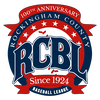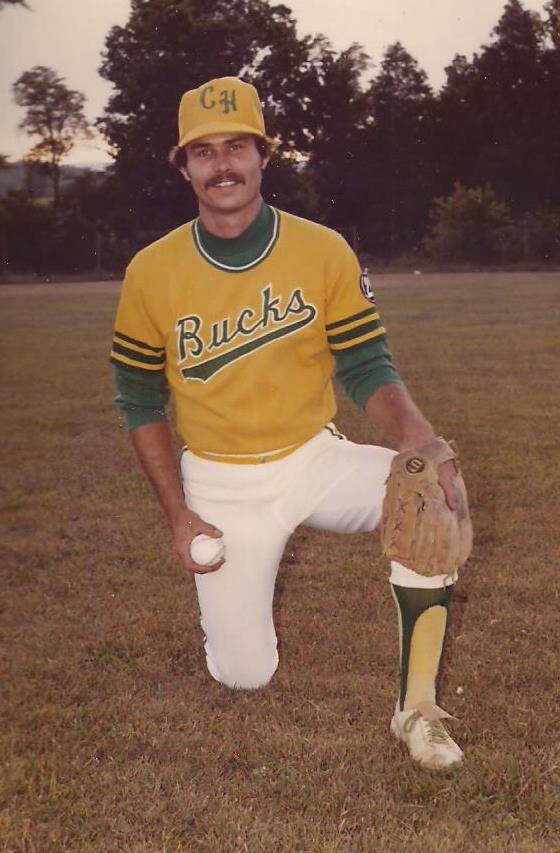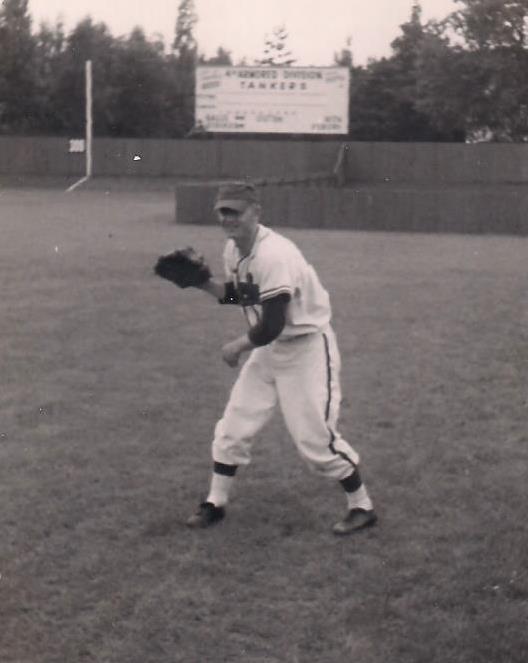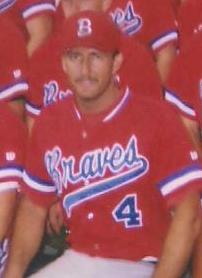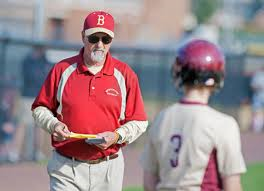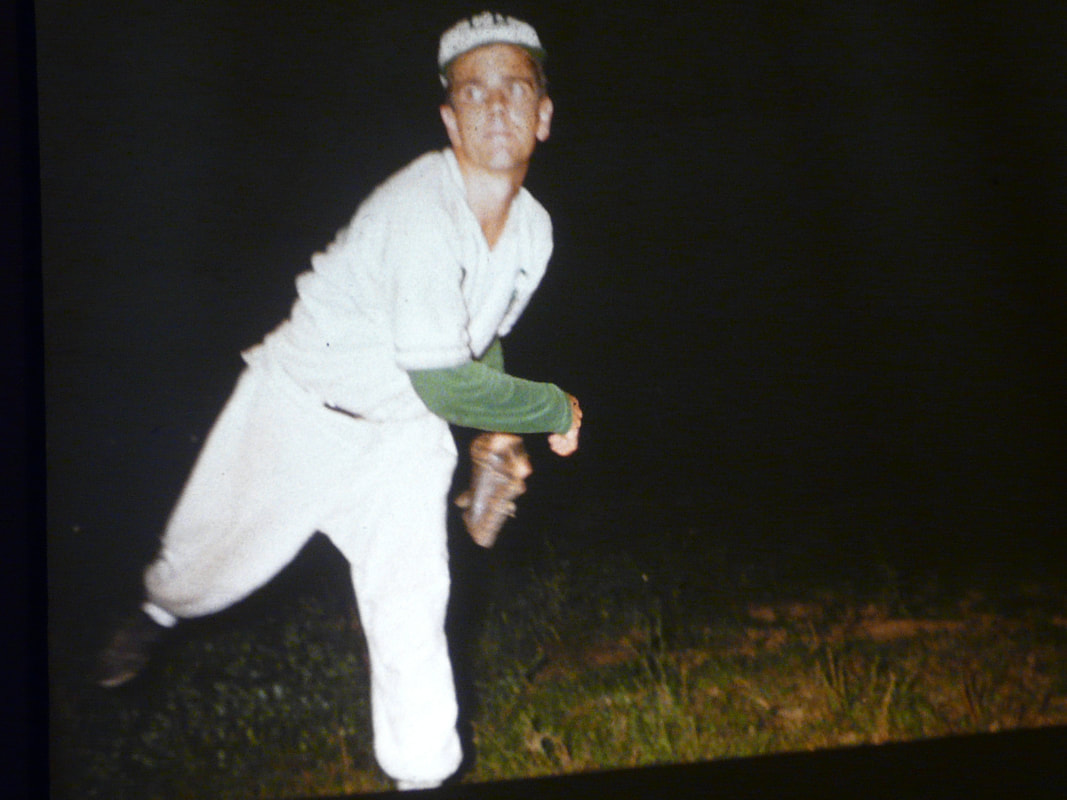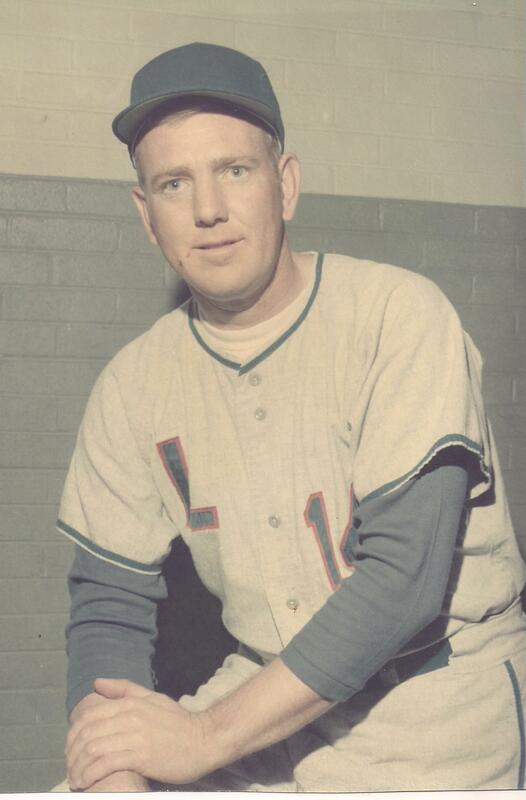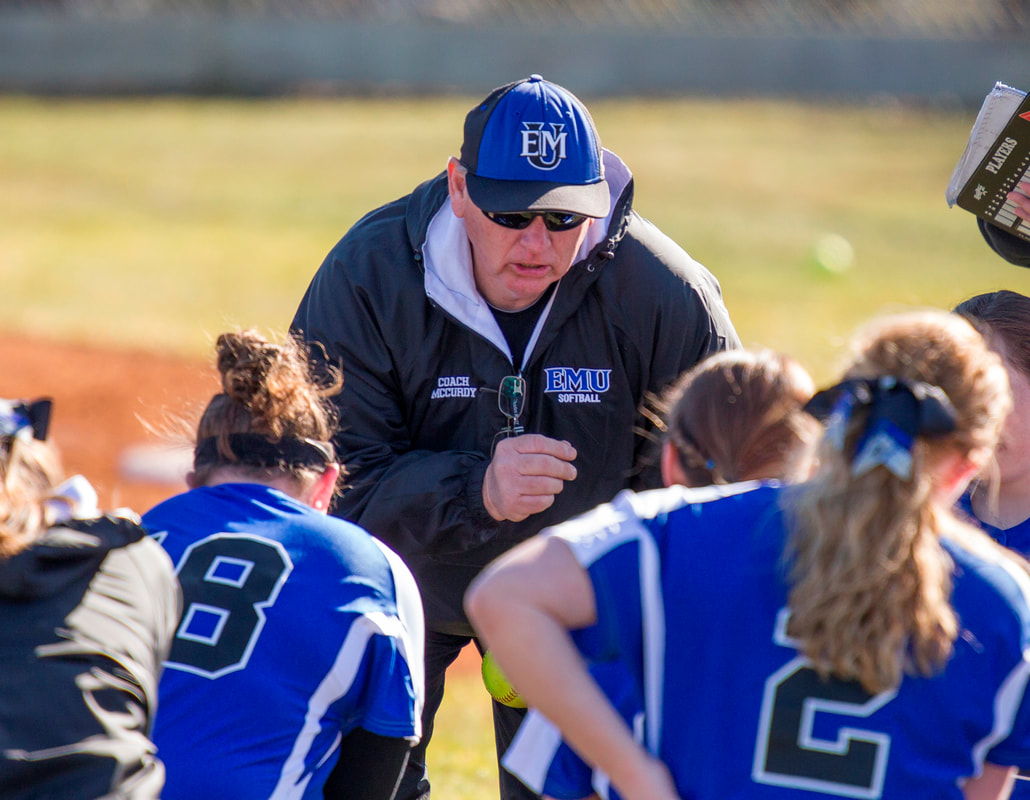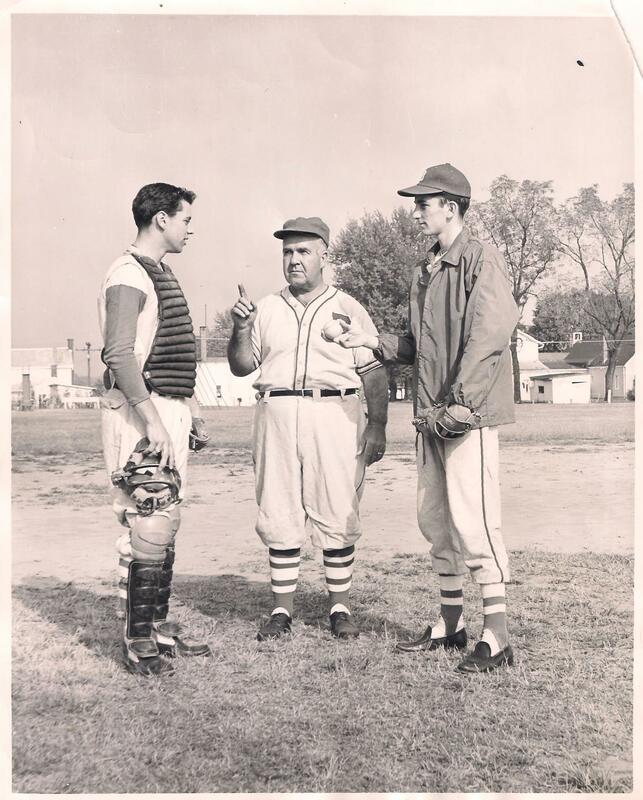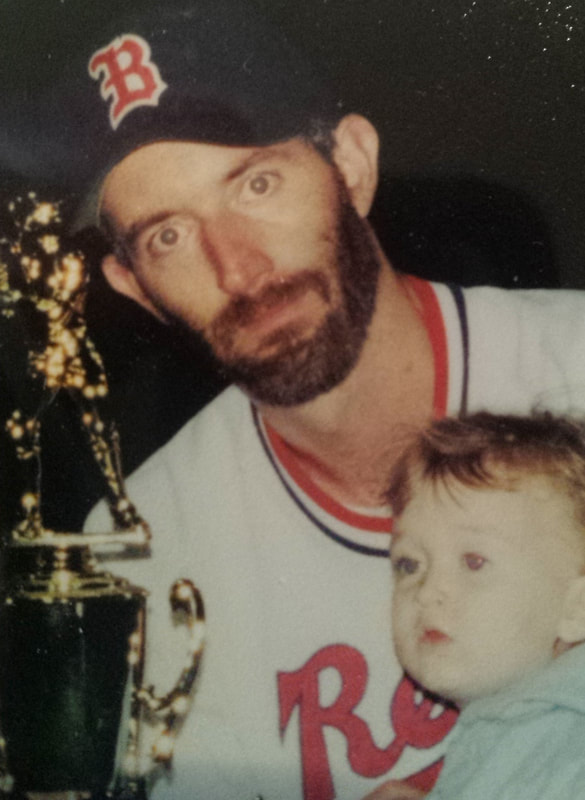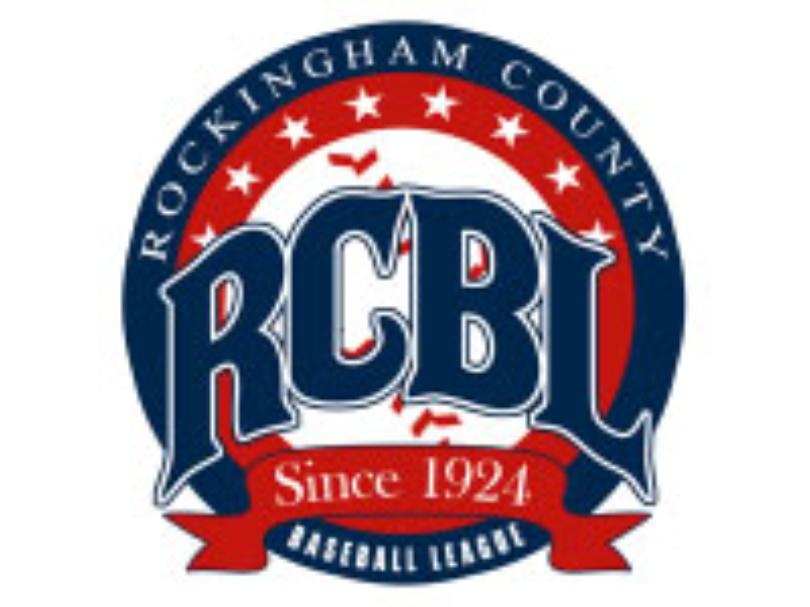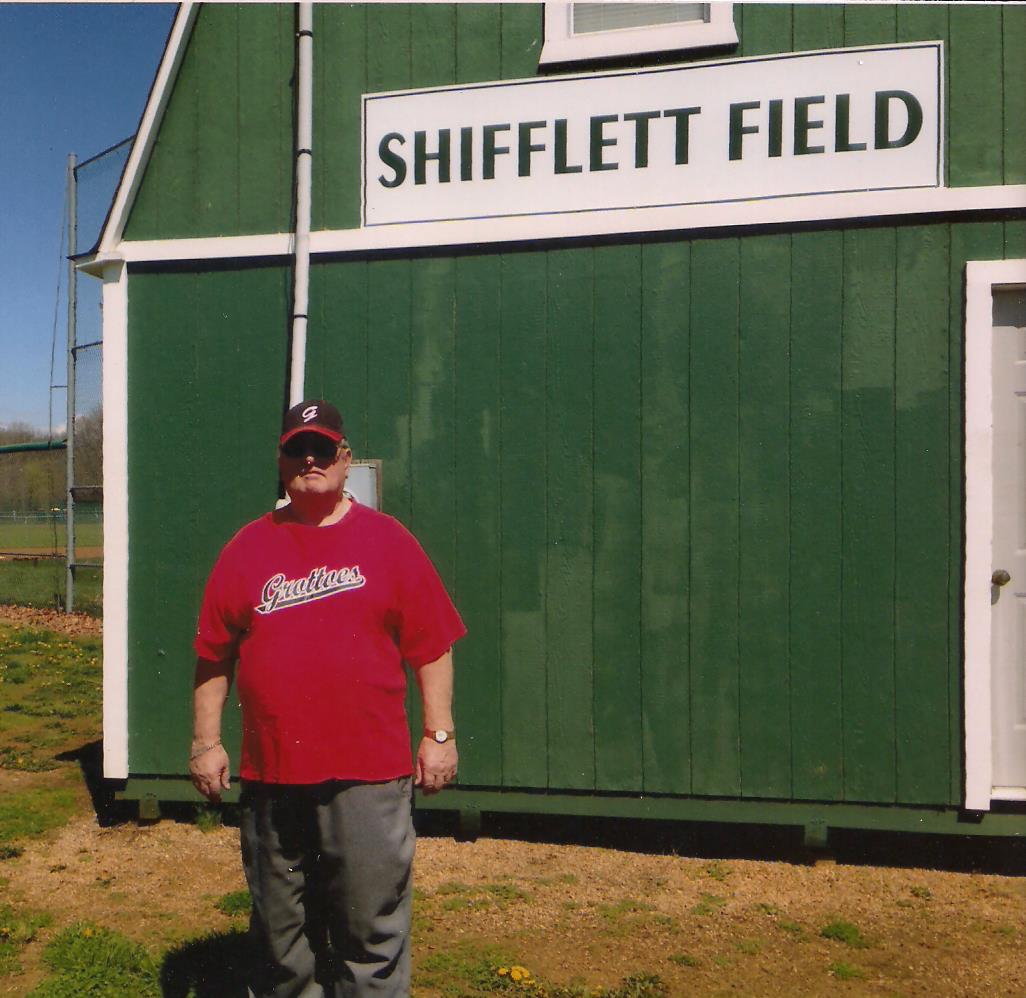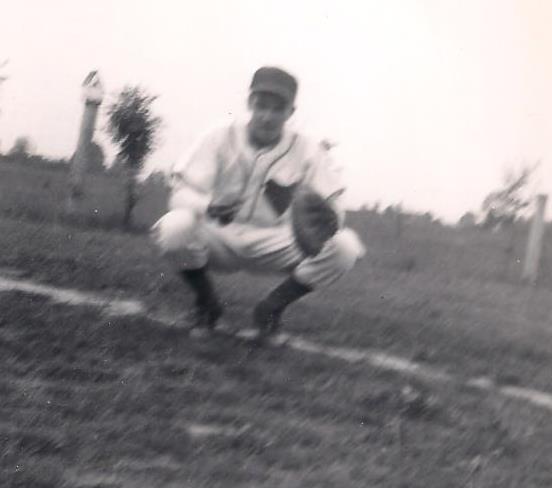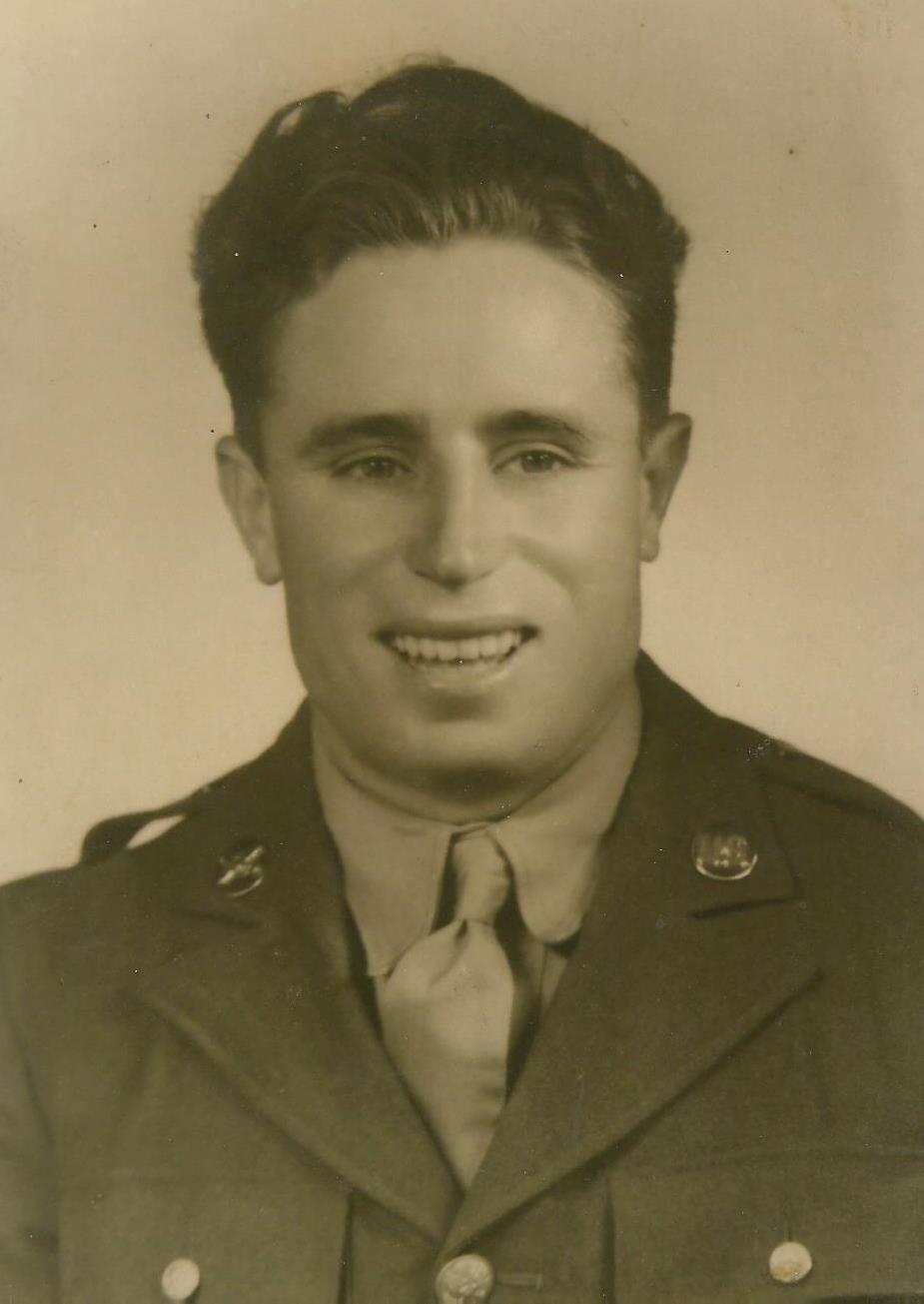RCBL Hall of Fame Class of 2015
Special thanks to Lauren Jefferson (HOF Class of 2017) for researching, writing, and producing player biographies.
Eddie Bowman
Eddie Bowman grew up not far from the Clover Hill ballpark, which is named after his great-uncle Buck Bowman. It was Buck who invited Eddie to start playing for Clover Hill in 1970 as a 16-year-old. He eventually went on to play the next 18 years, missing only one season for American Legion ball. Eddie was a member of the 1971 state championship team at Turner Ashby High School and also played at Virginia Tech. A shortstop and second baseman, Eddie was a member of five championship teams in 1975, 1976, 1982, 1985 and 1987, and three pennant-winning teams in 1976, 1978, and 1982. He led Clover Hill to the ’87 championship while transitioning from a player-manager to a manager.
After the 1988 season, Eddie devoted his time to coaching, starting with sons Addison and Dustin, and daughters Laura and Kaitlyn, each of whom were talented athletes. Addison and Dustin became the fourth generation of Bowmans to be involved in baseball at Clover Hill. He’s coached teams for 26 years now, including at least seven years working as a volunteer assistant to his daughter, Laura, when she was head coach at Turner Ashby High School. |
Virgil Cook
Virgil Cook played more than 20 seasons in the Rockingham County Baseball League, starting in the late 50s and ending in the early 70s. He also played in the Tri-County League and the Valley League. He helped Keezletown to win their only championship in 1964, and he also played with Elkton, but most of his time was with Grottoes.
Virgil also played in 1962 and 1963 with an elite team in the Army in Europe. He says he never made much rank because he was always playing ball. There, thanks to the instruction of a former Negro League catcher, he became a savvy pitcher with excellent control and a variety of pitches he could throw from different arm slots. Virgil shares with fellow Hall of Famer Jim Nichols the record of 22 strikeouts in a game. He threw a host of games with strikeout numbers that were close to that, and was also a consistent lead-off hitter. He attributes his long-term success to good coaching from high school on up, to his good friend and catcher Paul Foltz, and the rest of his teammates, who gave him such solid defense that he “could make a mistake now and then.” In accepting this award, Virgil wants to acknowledge that he played with many “good team players and managers and that his wins were their wins. |
Darren Curry
Darren Curry played 19 seasons of County League ball: 13 seasons for Clover Hill, four for Briery Branch and two with Linville. As a sophomore in high school, he began playing with Clover Hill. Eddie Bowman, Clover Hill’s starting shortstop for years, slid over to second base when Darren arrived, and the two were known for turning great double plays.
Ask just about anyone who knew the league through the ‘80s and ‘90s, and all fans agree that he was the league’s best shortstop, with excellent hands, great range, and quick footwork. He was also an excellent closer and after gaining a bit of muscle and size, consistent at the plate as well. With Clover Hill, he won two series championships and contested for three others. When he went to Briery Branch in 1995, the team hadn’t won a championship since 1968. They lost that year to Bridgewater in the finals, but won the regular season pennant in 1997, ending Bridgewater’s streak, and won the series championship in 1998, breaking a 19-season curse. His next stop, Linville, also benefited from his presence, winning both pennant and series in 2000. His last year was 2002. Darren joins his brother Clint Curry in the Hall of Fame. |
Donnie Fulk
When Donnie Fulk was 15, manager Pidge Rhodes asked him to play for Bridgewater. That 1962 season, Donnie didn’t play much behind regular shortstop Ted Temple. But he was the choice for a late-game substitution in left field, a position which gave him the thrill of catching the last out to clinch the semi-final win over Clover Hill and the final fly ball against Linville.
In 1963, Donnie became Bridgewater’s regular starting shortstop for the next 13 seasons, eventually playing every position. He batted either in the lead-off spot or second, and in at least one season, struck out only once. He was a regular All-Star selection through his final season in 1976. Even longer than his playing career have been his dedication and devotion to coaching. He coached for more than 50 years, beginning with Senior League baseball teams (where he coached at least three Hall of Fame inductees). He also coached rec and summer elite softball teams before taking over the softball program at Bridgewater College in 1991. He led Bridgewater to multiple ODAC championships and NCAA tournament appearances, and a career record of 598 wins, 318 losses and 1 tie. Donnie retired after his 23rd season in 2014. The winter after he retired, he coached two rec basketball teams, one of girls and one of boys, and spent the spring coaching a Little League softball team. |
Eddie Long
Galen “Eddie” Long was Clover Hill’s ace pitcher through the early 1950s. He is one of four Long brothers to play local baseball. Unfortunately we don’t have a lot of stats about Eddie’s pitching, but a mark of his reputation is that he achieved acclaim in a relatively short career. He is widely known among players of that era as an excellent pitcher, and when he wasn’t pitching, managers found a way to get him in the line-up because he was a solid hitter.
A Clover Hill native, Eddie went into the Merchant Marine shortly after World War II, and his baseball career started when he returned to the Valley. Eddie played in the Massanutten and Valley leagues before coming to Ottobine. He was selected to several All-Star teams and was the starter for the RCBL’s All-Star teams that played against several Valley League teams. This, too, is a mark of his talent. On July 2, 1954, he was the first pitcher to win a game in the new Clover Hill ballpark. During these years, he threw at least one one-hitter and helped Clover Hill to the 1955 series championship. He retired after the 1956 season. In addition to his brother Wally, he has a few other family members already in the Hall: brother-in-law Harry Whitmore, his nephew Wayne Whitmore, and distant cousin, Fred Hill. |
Raymond W. Martin
Raymond W. Martin’s RCBL career spanned from 1948 to 1982 as a player and manager, including 17 seasons as a player and 13 as a manager. He holds the distinction of being the only Hall of Fame inductee to play, manage and umpire in multiple RCBL championships.
Raymond played most of his career at Keezletown, beginning at age 16 in 1948. He earned a pennant and a championships with Linville in 1960 and then again, back at Keezletown as a player/manager in 1964. In 1969, he took over managing Linville and was there, with the exception of a few years, until 1982. He led Linville to eight pennant wins, two runner-up finishes, and five series wins. Five of those times, Linville won both the pennant and the series. Raymond managed such successful teams that he had players coming to him, most notably—and this was a first for the RCBL—from James Madison University. Eventually he would manage a total of seven players who had played professionally or went on to professional careers, including the former pros Sparky Simmons and John Radosevich, and future pros Mike LaCasse, Jim Barbe, Tim Semones, Barnes Yelverton and Donnie Bowman. After retiring from managing, finding it hard to leave the game he loved behind, he umpired in the County League. |
J.D. McCurdy
J.D. McCurdy grew up as the batboy of the Bridgewater team, watching his dad Pete play. His first season was 1968, the last year of his dad’s 23-year career. In his first game, he pitched Bridgewater to a win, and his dad came into the outfield in the eighth inning.
From 1968 through 1984, with the exception of one season spent in the Valley League and the following season at Linville, J.D. played, mostly first base, for 15 seasons for Bridgewater. He was on teams that won four league series: with Linville in 1974, and with Bridgewater in 1977, 1978, and 1984. From the 1973 season on, he was also a mainstay on All-Star teams. Known as an outstanding glove with great footwork, J.D. was also a power hitter who usually batted clean-up. J.D. began coaching before graduating from Bridgewater College, and has been involved with softball since the mid-90s as co-founder of the Smashing Apples high school summer tournament team. He coached at Turner Ashby High School for six years, leaving to take over the Eastern Mennonite University softball team in 2004. He’s been Old Dominion Athletic Conference Coach of the Year twice, with a record of 255 wins, 194 losses and 1 tie in his 12 seasons. In 2010, he was inducted into the Turner Ashby High School Hall of Fame. |
Carl Edward “Pidge” Rhodes
Carl Edward “Pidge” Rhodes, Sr.’s contributions to the RCBL are many: he spent several seasons managing Bridgewater and also as league president. He was also a long-time umpire and a staunch supporter of the league. According to his sons, Pidge believed his greatest achievement was his role in the founding of the Bridgewater Little League in 1954. That league helped to develop the careers of probably several hundred local baseball athletes and also ensured the ongoing existence of the RCBL.
It’s important too that Pidge played a role in integrating the league in the early 1960s. With Briery Branch manager Gil Cook, he was supportive of the desire to play and the courage of African-American players Ted Temple, Seymour Solomon and Roscoe Burgess. It’s not right to talk about Pidge Rhodes without sharing a few stories, as he was remembered by many as much for his sharp wit as for his love of the game. One night while umpiring at Craigsville in the Valley League Pidge called the batter out on a third strike. In frustration, the batter threw his bat up in the air. Pidge pointed his finger at him and said, “If that bat hits the ground, you’re outta here.” Pidge coached in the Little League that he founded. He would tell the boys, “Throw the ball hard, I don’t care where it goes, just throw it hard.” He was also famous for not correcting anyone’s batting stance. He would say, “I don’t care if he stands on his head as long as he hits the ball.” His induction into the RCBL Hall of Fame honored his love of the game, for his devotion on so many levels to the sport, and for bringing organized ball to the Valley, we honor him tonight. His sons Dewayne Rhodes and Carl “Pidge” Rhodes, Jr. accepted the award on his behalf. |
Pat Shiflet
Pat Shiflet was about the largest and longest target anyone could have at first base. “If you overthrew Pat Shiflet,” said one spectator, “you had a problem.” A 6-5 lefty, Pat joined the Reds in 1984, and was with them through “The Streak,” their eight consecutive sweeps of both regular season and series titles.
He also played four years at Bridgewater College, setting six records before he graduated: RBI in a single game; triples in a single game; grand slams in a season; grand slams in a career; career RBI; and total bases in game. He routinely hit over .350 and was an All-Star selection just about every year of his long career: Pat played from 1984 through 2001, and then three more seasons beyond that. For two years, he was a player-manager and he has also served on the board of the Reds. Pat didn’t just play for the Reds. He married into the team. His wife Denise is granddaughter of Hall of Famer Harry Whitmore, and she has served as club president. Pat said that if he had been right-handed and hitting more balls towards Darren Curry, he would definitely not be in the Hall of Fame. He also wanted it on the record that he was “blessed with talent galore around me,” and recognized some of those talented teammates in his acceptance speech. |
Harry Lee Simmons
Harry Lee Simmons was a well-known and well-respected pitcher in the 1940s, ’50, and early ‘60s. After his pitching career ended, he was a coach in both the County League and with the local Little League.
Harry Lee played with Spring Creek when he was 15 during the first year the league was revived after World War II. He played three seasons in the Valley League, and then played with Towers until that team folded in 1952. From 1953 until 1960, he played with Bridgewater. He was involved with five pennant winners, one with Towers and four with Bridgewater. Primarily a pitcher, and a knuckleballer at that, he threw at least one two-hitter and a three-hitter, as recorded in newspaper archives. The mark of a player’s excellence in certain years is his selection to the RCBL All-Star team in the years that the league’s very best played the Valley League All-Stars: Harry Lee was chosen at least once in 1954. After his career ended, he continued as a coach at Bridgewater, helping Pidge Rhodes manage the 1964 series winners, and he helped to coach the Little League and Senior League teams of his son, Gary, who went to an RCBL career of his own at Clover Hill. |
Doug Shifflet
Doug Shifflett has one of the longest careers of the 2015 inductees, with an involvement spanning more than 20 years. He started playing with Grottoes in 1958, helping them to a series win that year, and with the exception of the next two years with the Harrisonburg Turks in the Valley League, played baseball in the RCBL with Grottoes, Elkton, Harriston and Luray. Weathering the ups and downs of several ballclubs, he was a mainstay on any roster, playing in the hot corner and also “a mean first base,” according to one teammate.
Doug finished out his playing career 18 seasons later, when he became a player/manager at Grottoes in 1977, where he continued managing until 1980. As mayor of Grottoes for 18 years, he was instrumental in creating a new ballfield for Senior League baseball, which is now the home of the re-established Grottoes Cardinals. The field is fittingly named after him. Doug is one of those inductees who has contributed to the RCBL in many ways, as a player, a manager, and then as a key contributor with his civic contributions. By creating a place to play for kids and adults in his community, he helps keep baseball and the league alive. |
Jim Sheffer
Jim Sheffer was a catcher for Towers, Bridgewater, and Briery Branch, playing a total of 21 seasons from 1953 to 1976. He was named to All-Star teams from 1954, when he was 16, to his final season in 1976, when he was 37 years old. Jim credits two seasons playing with a select Sixth Army team in 1964 and 1965 as the main reason he returned to the RCBL to become one of the league’s best.
Jim played on one pennant-winning team, Bridgewater in 1958, but otherwise a series championship eluded him. Rather than moving to more successful teams, he spent his entire career committed to his local team. When he wasn’t catching, he played shortstop. He also had a reputation for being an excellent receiver who could not only manage a hot-tempered pitcher but catch just about any pitch, including those of some nasty knuckleballers such as Hall of Famers Ernie Knicely and Harry Lee Simmons. In 1972, he was named league MVP, with a .376 batting average and 19 homeruns on the season. At the time of that award, it was said that Jim hadn’t missed a game in 17 years. In his Hall of Fame induction interview, Jim expressed appreciation for all the friendships he enjoyed in the many years he played, which was just as important to him as the baseball itself. |
Talford “Tat” Will
Talford “Tat” Will is widely remembered as one of the best shortstops ever to play in the Rockingham County League. He was a member of the Mount Crawford team that dominated the late 40s, winning four straight regular season pennants from 1946-1949 and the championship series in three of those years: 1946, 1947, and 1949. When Mount Crawford fell out of the league, Tat went to Bridgewater, where the winning continued. The team won a pennant in 1950 and then was dominant in the regular season, winning consecutive pennants in four straight seasons from 1952-1955, but just one championship in 1952.
Tat’s nephew Bob Will nominated his uncle for this award. Bob played with Tat during his last season at Bridgewater. He says that Tat was a lead-off hitter and a Phil Rizzuto-style shortstop. Bob says, “There were so many good country baseball players during the 1950s and 1960s era, but Tat was one of the best. He was just a good player, pure and simple.” Tat also did some coaching after his career ended. His son Steve was on the Bridgewater Senior League team that had a run at the state championship in 1968. In later years, Tat was a passionate fan of the Washington Senators and then the Baltimore Orioles. Steve says you didn’t want to be in the house when the Orioles played the Yankees. |
